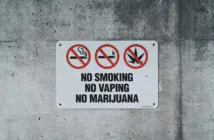Daylight saving this weekend is a good time to check on the amount of sleep you are getting to keep yourself and others healthy and safe as you work, says WorkSafe Chief Executive Nicole Rosie.

“People who are tired and fatigued are 30 per cent more likely to have an accident.
“Both businesses and workers have a responsibility to manage fatigue and the risks that arise from it.
“Work and personal demands can often make it difficult to get the sleep we need to function safely throughout the day,” Rosie admits.
WorkSafe has a fatigue quick guide with information for businesses and workers to explain their respective responsibilities to manage fatigue.
Fatigue is a work-related health risk if it reduces our ability and alertness to work safely and effectively.
Fatigue can affect people’s feeling of wellness and wellbeing and impact productivity.
It can also lead to safety incidents.
It is a state of physical and/or mental exhaustion which can impact our ability to function safely.
This may lead to errors and an increase in workplace health and safety incidents, with potentially serious consequences for both workers and businesses.
“According to our 2015 Health and Safety Attitudes and Behaviour Survey, 43 per cent of workers in sectors with a high risk of injuries and fatalities reported working when overtired,” Rosie notes.
WorkSafe is currently working with other regulators including the New Zealand Transport Agency, Civil Aviation Authority and Maritime New Zealand to look at ways to better support workers and business to manage fatigue in the workplace.
The aim is to develop key cross-industry information for businesses, workers and their families about how to recognise and manage fatigue in the workplace.



